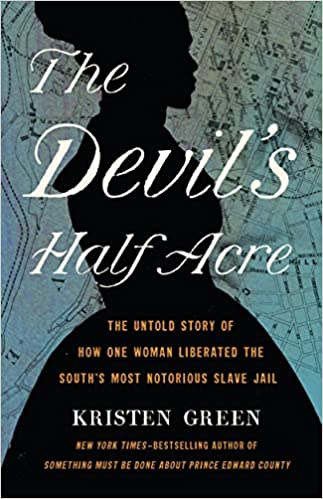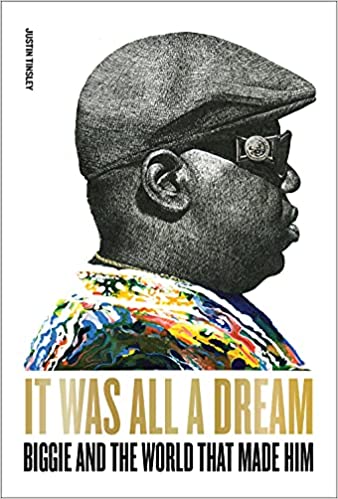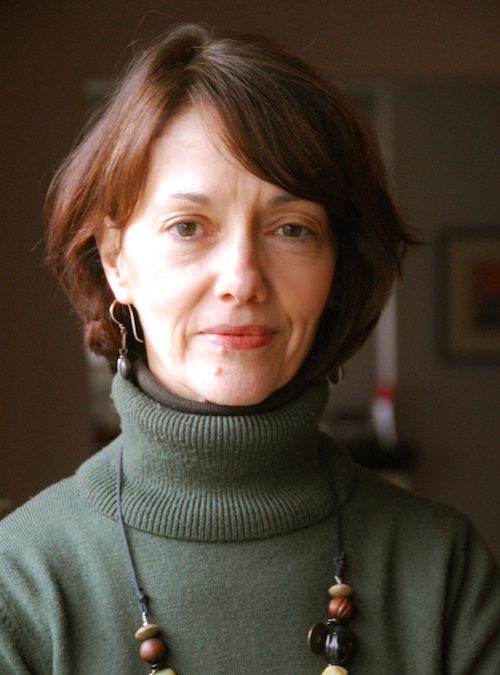
|
January 2022 | Volume 16 | Number 12
|
|
|

FROM THE EDITOR
Earlier this week BIO hosted its first virtual Happy Hour over Zoom, which was billed as an event that would “chase away the winter blues.” In my personal estimation, it delivered. The event kicked off with a member in Australia asking if one ought to take driving lessons in preparation for beginning to drive on the other side of the road in other countries, and the number of other members who were able to make suggestions based on the time they spent living in both the United States and other countries really drove home (sorry for the pun) what an eclectic group we are, and what fascinating experiences we, the writers of others’ lives, carry with us.
Really I should say you, as my experiences beyond North America thus far are limited to about 72 hours I spent in Berlin before returning to my home at the time in Boston. But that is, perhaps, a story for another Zoom social. After that fun get together, the chill of winter is really thawing, and so we continue to look toward spring with the “Spring 2022 Preview” in this edition of TBC.
It’s not too late for news to be included in the March edition of the BIO Insider. Please reply directly to this message or click this link to send along news and notes: editortbc@biographersinternational.org.
Sincerely,
Holly
|
|
|
|
What’s in Store for Biography: Spring 2022 Preview
The biographies to be published this spring exhibit a few dominant characteristics: a slew of pop culture icons, particularly in music and fashion, are getting “definitive” treatments. Other works are interesting looks at dynasties of all stripes, from the Rothschilds and the Gettys to the family behind New York’s famous gourmet grocery store Zabar’s. (The Zabar’s book is even written by a member of the family, for those of you interested in family history.) At least a couple appear like they will be quite innovative in form—one is a look at Henry David Thoreau through six walks he undertook, another is the “life” story of a very old, sometimes revered, and often controversial song.
Additionally, many women are getting their stories told, some for the first time, although predictably no woman is being written about more than the famously reticent Queen Elizabeth II, who will celebrate her Platinum Jubilee this year. One of her new biographies is being written by actress Joanna Lumley, and a celebrity writer of a different stripe—James Patterson—is co-writing a family biography of another branch of British royalty: Diana, Harry, and William.
Rumbles of political reckoning can also be felt emanating from some of the biographies due out. As previously reported in the BIO Insider, George Floyd’s biography by Robert Samuels and Toluse Olorunnipa, Washington Post reporters who covered Floyd’s murder and its aftermath, is due in May. Winston Churchill: His Times, His Crimes by Tariq Ali, British political activist and public intellectual, will likely prove to be a fresh take on an oft-chronicled subject. And a dual biography of Crazy Horse and Sitting Bull, The Earth Is All That Lasts, promises to paint the most complete picture yet of these fabled leaders.
Last but not least, several BIO members have books coming out this spring. Among them are BIO Advisory Board member Candice Millard, whose River of the Gods: Genius, Courage, and Betrayal in the Search for the Source of the Nile chronicles the adventures of three men who embarked on the seemingly impossible quest to find the headwaters of the Nile—two of them explorers for the Royal Geographical Society, and the third a formerly enslaved person who had been taken from East Africa to India before becoming a critical guide. BIO member Mark Perko has co-written an extensive biography of inventor Nikola Tesla that also examines Tesla’s lifelong struggle with mental health issues. And BIO member and intelligence historian Betsy Rohaly Smoot is publishing Parker Hitt: The Father of American Military Cryptology. Among Hitt’s many contributions to his field is the creation of the 1916 Manual for the Solution of Military Ciphers that laid the groundwork for the modern American cryptologic system.
This compilation is a preview and is far from exhaustive. Every month in the BIO Insider, we run a list of new releases for biography in hardcover and paperback. If you do not see your spring title here, but want to be sure it gets included in other updates, please email me at editortbc@biographersinternational.org. Please note: the publication dates listed here are current as of TBC’s deployment; due to ongoing pandemic delays, these release dates are subject to change.
|
Political Figures and Wartime Heroes

- A Queen for All Seasons: A Celebration of Queen Elizabeth II on her Platinum Jubilee by Joanna Lumley (Hodder & Stoughton) APRIL
- Queen of Our Times: The Life of Queen Elizabeth by Robert Hardman (Pegasus Books) APRIL
- The Devil’s Half Acre: The Untold Story of How One Woman Liberated the South’s Most Notorious Slave Jail by Kristen Green (Seal Press) APRIL
- Incomparable Grace: JFK in the Presidency by Mark K. Updegrove (Dutton) APRIL
- Mutinous Women: How French Convicts Became Founding Mothers of the Gulf Coast by Joan DeJean (Basic Books) APRIL
- Jill: A Biography of the First Lady by Julie Pace and Darlene Superville (Little, Brown and Company) APRIL
- His Name Is George Floyd: One Man’s Life and the Struggle for Racial Justice by Robert Samuels and Toluse Olorunnipa (Viking) MAY
- When Marilyn Met the Queen: Marilyn Monroe’s Life in England by Michelle Morgan (Pegasus Books) MAY
- Winston Churchill: His Times, His Crimes by Tariq Ali (Verso) MAY
- The Hangman and His Wife: The Life and Death of Reinhard Heydrich by Nancy Dougherty and edited posthumously by Christopher Lehmann-Haupt (Knopf) MAY
- Thomas Jefferson: A Biography of Spirit and Flesh by Thomas S. Kidd (Yale University Press) MAY
- Team America: Patton, MacArthur, Marshall, Eisenhower, and the World They Forged by Robert L. O’Connell (Harper) MAY
- Nimitz at War: Command Leadership from Pearl Harbor to Tokyo Bay by Craig L. Symonds (Oxford University Press) JUNE
- John of Gaunt: Son of One King, Father of Another by Kathryn Warner (Amberley Publishing) JUNE
- The Earth Is All That Lasts: Crazy Horse, Sitting Bull, and the Last Stand of the Great Sioux Nation by Mark Lee Gardner (Mariner Books) JUNE
- Growing Up Getty: The Story of America’s Most Unconventional Dynasty by James Reginato (Gallery Books) JULY
- The Women of Rothschild: The Untold Story of the World’s Most Famous Dynasty by Natalie Livingstone (St. Martin’s Press) JULY
- Diana, William & Harry by James Patterson and Chris Mooney (Little, Brown and Company) AUGUST
Science, Technology, and Philosophy
- The Man Who Understood Democracy: The Life of Alexis de Tocqueville by Olivier Zunz (Princeton University Press) MAY
- With Stars in Their Eyes: The Extraordinary Lives and Enduring Genius of Aden and Marjorie Meinel by James B. Breckinridge and Alec M. Pridgeon (Oxford University Press) MAY
- The Facemaker: A Visionary Surgeon’s Battle to Mend the Disfigured Soldiers of World War I by Lindsey Fitzharris (Farrar, Straus & Giroux) JUNE
- Proving Ground: The Untold Story of the Six Women Who Programmed the World’s First Modern Computer by Kathy Kleiman (Grand Central Publishing) JULY
- Saving Freud: The Rescuers Who Brought Him to Freedom by Andrew Nagorski (Simon & Schuster) AUGUST
Literary Figures and Fine Artists
- Six Walks: In the Footsteps of Henry David Thoreau by Ben Shattuck (Tin House Books) APRIL
- Winslow Homer: American Passage by William R. Cross (Farrar, Straus and Giroux) APRIL
- Everybody Thought We Were Crazy: Dennis Hopper, Brooke Hayward, and 1960s Los Angeles by Mark Rozzo (Ecco) MAY
- Picasso’s War: How Modern Art Came to America by Hugh Eakin (Crown) JULY
Popular Culture and Sports

- Who By Fire: Leonard Cohen in the Sinai by Matti Friedman (Spiegel & Grau) APRIL
- Tiger & Phil: Golf’s Most Fascinating Rivalry by Bib Harig (St. Martin’s Press) APRIL
- Lies My Mother Told Me: Tall Tales from a Short Woman by Melissa Rivers (Post Hill Press) APRIL
- True: The Four Seasons of Jackie Robinson by Kostya Kennedy (St. Martin’s Press) APRIL
- Bill Frisell, Beautiful Dreamer: The Guitarist Who Changed the Sound of American Music by Philip Watson (Faber & Faber) MAY
- Phil: The Rip-Roaring (and Unauthorized!) Biography of Golf’s Most Colorful Superstar by Alan Shipnuck (Simon & Schuster) MAY
- Zabar’s: A Family Story, with Recipes by Lori Zabar (Schocken) MAY
- Anna: The Biography (Anna Wintour) by Amy Odell (Gallery Books) MAY
- It Was All A Dream: Biggie and the World That Made Him by Justin Tinsley (Abrams) MAY
- Harry Styles: The Making of a Modern Man by Sean Smith (HarperCollins) MAY
- My Old Kentucky Home: The Astonishing Life and Reckoning of an Iconic American Song by Emily Bingham (Knopf) MAY
- Rickey: The Life and Legend of an American Original (MLB Hall of Famer Rickey Henderson) (Mariner Books) JUNE
- George Michael: A Life by James Gavin (Abrams Press) JUNE
- Rogues: True Stories of Grifters, Killers, Rebels and Crooks by Patrick Radden Keefe (Doubleday) JUNE
- Chess Queens: The True Story of a Chess Champion and the Greatest Female Players of All Time by Jennifer Shahade (Hodder & Stoughton) JUNE
- Queen As It Began: The Authorised Biography by Jacky Smith and Jim Jenkins (Omnibus Press) JUNE
- Path Lit by Lightning: The Life of Jim Thorpe by David Maraniss (Simon & Schuster) AUGUST
Books by BIO Members
- They Called Us Girls: Stories of Female Ambition from Suffrage to Mad Men by Kathleen Courtenay Stone (Cynren Press) MARCH
- Parker Hitt: The Father of American Military Cryptology by Betsy Rohaly Smoot (University Press of Kentucky) MARCH
- Queen of the West: The Life and Times of Dale Evans by Theresa Kaminski (Lyons Press) APRIL
- River of the Gods: Genius, Courage, and Betrayal in the Search for the Source of the Nile by Candice Millard (Doubleday) MAY
- Tesla: His Tremendous and Troubled Life by Mark Perko (BIO member) and Stephen M. Stahl (Prometheus Books) MAY
- Traitor King: The Scandalous Exile of the Duke & Duchess of Windsor by Andrew Lownie (Pegasus Books) JULY (Note: first published in UK, August 2021.)
- Democratic Justice: Felix Frankfurter, the Supreme Court, and the Making of the Liberal Establishment by Brad Snyder (W.W. Norton & Co.) AUGUST
|
|
|
|
FROM THE PRESIDENT
Responsible Mentorship
 BIO President Linda Leavell
BIO President Linda Leavell
by Linda Leavell
Two cases of alleged sexual harassment among BIO members have recently come to my attention. Although the cases are unrelated, both involve aspiring biographers receiving unwelcome sexual attention from much older, successful biographers whom they regarded as mentors.
I invited both women to file formal complaints, and both declined because they did not want to draw further attention to themselves from the men they accused of harming them. (A formal complaint requires giving the accused a chance to respond.) I understand and respect their wishes. Both women did, however, urge me to take measures to protect them from further harassment and to protect other BIO members as well.
Harassment can take many forms, all of which can potentially inflict psychological damage and derail careers. What disturbs me deeply about these two cases is that both took place within mentoring relationships.
Mentoring lies at the heart of BIO’s existence. In his keynote address at the 2019 annual conference, the organization’s cofounder, James McGrath Morris, compared BIO to a New Mexican family of weavers who hand down their craft from one generation to the next. One of my first contributions to BIO was as a cofounder, with Will Swift and Cathy Curtis, of BIO’s mentoring committee. Our recommendations led to BIO’s flourishing coaching program.
I have benefitted greatly from mentors in my own career. The best thing they did for me was envisioning my success before I could see it for myself. As president of BIO, I hear many reports of members benefitting from contacts made through BIO—such as a coach helping with a book proposal, the fellowship of an online roundtable, and a senior biographer organizing a conference panel to promote biographers under 40. Nothing is more important to me as BIO’s president than fostering mentor relationships—and assuring that those relationships maintain boundaries of mutual respect.
Over the past half century, as women entered professions formerly dominated by men, they depended upon male mentors. I certainly did. When I finished my BA in the mid-1970s, there were no women PhDs in the departments of my two majors. In the English department, where I earned my PhD in the mid-1980s, there were two women PhDs, but I barely knew them. In short, women mentors were not an option for me.
Some of my mentors seemed to assume that our professional intimacy could lead to a different kind of intimacy. Despite their unwelcome advances, I needed the encouragement, advice, letters of recommendation, and in one case the employment they provided. This dilemma was common among women of my generation.
Before 1991, when Anita Hill testified before Congress about the sexual harassment she experienced while working for Clarence Thomas, women were still being taught that men could not control themselves and that it was the woman’s fault if she gave a man “the wrong idea.”
We have come a long way in the years since Hill’s testimony. Now young people are taught—and rightly so—that it is not only the responsibility of those in power to behave appropriately but the responsibility of institutions such as BIO to enact safeguards against abuses of power.
BIO cannot offer a guarantee against predatory behavior by its members. But we can certainly do more than we have done to educate all members about our shared responsibility to look out for one another and to respect one another.
I appointed an ad hoc committee to address the issue of sexual harassment. At its last meeting, BIO’s Board of Directors unanimously approved two of the committee’s recommendations: a revised code of conduct and the requirement that all 2022 conference registrants agree to comply with it. I wholeheartedly support these measures and encourage you to read the new Code of Conduct, if you have not done so already.
In future issues of The Insider, I will tell you about the ad hoc committee’s additional recommendations and the Board of Directors’ ongoing consideration of them. You may reach me with your own thoughts and suggestions here.
Linda Leavell is the president of BIO and a founding member. Her biography of Marianne Moore won the 2014 Plutarch Award and the PEN/Jacqueline Bograd Weld Award for biography.
|
|
|
|
MEMBER INTERVIEW
6 Questions with Joanne B. Mulcahy
 photo courtesy of Judy Blankenship
photo courtesy of Judy Blankenship
What is your current project and at what stage is it?
My project is a biography of American artist Marion Greenwood. In 1933, at age 24, she gained international attention by painting the first mural by a woman in Mexico. She followed with remarkable frescoes in the Abelardo Rodríguez market in Mexico City, working with Diego Rivera and other luminaries. She lived alternately in New York City and Woodstock, traveling to create paintings, murals, and lithographs in Paris, Taos, Hong Kong, India, Haiti, and other parts of the world. Her star blazed through the mid-twentieth-century art world, but like many women artists her once-celebrated work is little known today. A dazzling beauty, she also endured more than the usual dose of sexism for her freewheeling sexuality. I want to celebrate her life and art but also uncover the blind spots in our reading of art history and women’s lives. I’m currently revising the first draft and seeking a publisher.
What person would you most like to write about?
I don’t have a new project in mind yet. Perhaps a writer, but I also feel pulled back to my academic training in anthropology and folklore. I found the intellectual history of those worlds fascinating. New ideas crystallized after I read Charles King’s wonderful group biography, Gods of the Upper Air: How a Circle of Renegade Anthropologists Reinvented Race, Sex, and Gender in the Twentieth Century.
Who is your favorite biographer or what is your favorite biography?
There are so many but a few stand out for how they challenge traditional forms and/or depictions of mythic figures. Kathryn Harrison’s Joan of Arc: A Life Transfigured is a fascinating mix of novelistic detail and analysis of the myths and artistic renderings of Joan. Wendy Lesser’s You Say to Brick: The Life of Louis Kahn begins with his death and integrates “in situ” segments that evocatively describe his architecture. Other writers combine biography with memoir and/or essayistic musings: Doireann Ní Ghríofa’s A Ghost in the Throat; Diane Johnson’s The True History of the First Mrs. Meredith and Other Lesser Lives; Megan Marshall’s Elizabeth Bishop: A Miracle for Breakfast; and Molly Peacock’s Flower Diary: In Which Mary Hiester Reid Paints, Travels, Marries & Opens a Door. I admire their artistry and creativity.
What have been your most satisfying moments as a biographer?
Those [moments] that reveal generosity. The enthusiasm and support of Greenwood’s estate executor, Marc Plate, consistently urges me forward. He loaned me his full archive but he no longer had a cache of letters between Greenwood and her ex-husband, Charles Fenn. Those had landed with a person unwilling to share them. Fenn’s daughter, Alyn, from his second marriage, didn’t have copies either, but I planned a trip to Ireland to meet her. On the eve of my departure, the thousand letters I sought arrived in my inbox. Some mysterious exchange had happened. Much was left unsaid, as is sometimes the way in Ireland, but I was deeply grateful.
Another kind of generosity arrived with the pandemic, when Biographers International [Organization] created online writing groups. The group of women I joined has been a fount of encouragement and writing wisdom.
What genre, besides biography, do you read for pleasure and who are some of your favorite writers?
I try to read broadly. Poetry always inspires and I’m lucky to receive regular selections from friends who are poets. I especially appreciate fiction writers who transport me to diverse cultures, among them Louise Erdrich, Francisco Goldman, Hisham Matar, Michael Ondaatje, and Olga Tokarczuk. The biggest surprise of my biography-related reading of fiction was the discovery of a classic I’d neglected: Marcel Proust’s In Search of Lost Time. I had to know why Greenwood was obsessed with Proust and named her cats Albertine.
I’m impressed by the depth of longform journalism in Patrick Radden Keefe’s Say Nothing: A True Story of Murder and Memory in Northern Ireland and Ted Conover’s explorations of varied cultural worlds. Among literary critics, Louis Menand and Parul Sehgal always provoke new thinking. I love reading and writing essays, so collections accumulate on my nightstand. I’m currently immersed in Lydia Davis’s thoughts on translation, as well as work by James Baldwin, Teju Cole, Vivian Gornick, Patricia Hampl, Philip Lopate, and Ann Patchett.
If you weren’t a biographer, what dream profession would you be in, and why?
I would be Terry Gross. Doing interviews is the part of biography research that I most enjoy. There’s magic in our connection to others, the way stories take shape differently depending on the circumstances. I also envy Gross’s necessary immersion in books and films about diverse topics. I’d love an excuse to bow out of social events with, “I have to read for tomorrow’s show.” You might ask why I can’t do that now. Isn’t that the writer’s privilege and necessity? Excellent questions.
You can visit Joanne B. Mulcahy’s website here.
|
|
|
|
WRITERS AT WORK
Steve Paul
How do biographers do what they do? Or more precisely, how do they organize the space where they conceive of projects, go through notes, write and rewrite their books? With “Writers At Work,” we offers glimpses into the working spaces of fellow biographers, with the writers describing what works for them and perhaps offering tips on what others should or shouldn’t do.
This month, Steve Paul shows us where he works.
Please share pictures of where you work with us with the subject line as “Writers At Work,” so we can include them in future issues.
|

Paul says, “My little home office in Kansas City is crammed with books, paper, art, photos, and music. At the moment I’m tweaking what’s turning out to be three sample chapters of a projected biography of the poet William Stafford. ”
|
|
|
|
AMANUENSIS
“Finding His Voice: Newly Discovered Poems by Thomas MacGreevy”
by Lauren Arrington (BIO member)
(from The Times Literary Supplement)
“POEMS—IN THE STYLE OF EZRA POUND—PROBABLY PARODIES—AUTHOR UNKNOWN BUT CERTAINLY NOT YEATS”
Certainly not. But whom? When the flimsy sheaf of typescript pages was deposited in the National Library of Ireland, it hardly seemed worth finding out. Rice-paper thin and stained by rusty paperclip marks, the sheets were slid into a manila folder, labeled with heavy conjecture but a firm pen, and added to the bulk of the Yeats papers. The contents seemed to be of interest because of their provenance, not their authorship, and their presumed worth was implied with the hasty inscription.
When I called up the envelope, I wasn’t sure what I’d find. Maybe parodies by Pound himself, the kind he scribbled in missives to tolerant friends or politicians he wanted to annoy. Maybe some unknown’s juvenilia, enclosed in a fan letter for W. B. Yeats to exercise his famously excoriating replies. What I did not expect—and what I immediately recognized—was the work of an important modernist poet, Thomas MacGreevy (1893–1967). The six new poems resting among 15 poems in the unassuming brown envelope shed new light on the development of MacGreevy’s experimental style. None of the contents has been attributed to MacGreevy before, and it is perhaps fitting that the poems have emerged at a point when literary criticism has a more capacious reception of what modernism looks like. FULL STORY
Amanuensis: A person whose employment is to write what another dictates, or to copy what another has written. Source: Webster’s Revised Unabridged Dictionary (1913).
|
|
|
|
KEEP YOUR INFO CURRENT
Making a move or just changed your email? We ask BIO members to keep their contact information up to date, so we and other members know where to find you. Update your information in the Member Area of the BIO website.
|
|
|
MEMBERSHIP UP FOR RENEWAL?
Please respond promptly to your membership renewal notice. As a nonprofit organization, BIO depends on members’ dues to fund our annual conference, the publication of this newsletter, and the other work we do to support biographers around the world.
|
|
|
|
|
|
BIO PODCAST
New Episodes for February
Sonja Williams interviewed Tyrone McKinley Freeman, author of Madam C. J. Walker’s Gospel of Giving: Black Women’s Philanthropy During Jim Crow for the BIO podcast, and a new episode featuring BIO member Kevin McGruder interviewing Sheena Harris, author of Margaret Murray Washington: The Life and Times of a Career Clubwoman, has just been released today. LISTEN HERE
|
|
|
|
BIO BOARD OF DIRECTORS
Linda Leavell, President
Sarah S. Kilborne, Vice President
Marc Leepson, Treasurer
Steve Paul, Secretary
Kai Bird
Heather Clark
Natalie Dykstra
Gretchen Holbrook Gerzina
Anne Heller
Carla Kaplan
Kitty Kelley
Anne Boyd Rioux
Holly Van Leuven
Eric K. Washington
Sonja D. Williams
ADVISORY COUNCIL
Debby Applegate, Chair • Taylor Branch • Robert Caro • Ron Chernow • Tim Duggan • John A. Farrell • Irwin Gellman • Michael Holroyd • Peniel Joseph • Hermione Lee • David Levering Lewis • Andrew Lownie • Megan Marshall • John Matteson • Jon Meacham • Marion Meade • Candice Millard • James McGrath Morris • Andrew Morton • Arnold Rampersad • Hans Renders • Stacy Schiff • Gayfryd Steinberg • T. J. Stiles • Will Swift • William Taubman • Claire Tomalin
|
|
|
|
|
THE BIOGRAPHER'S CRAFT
Editor
Jared Stearns
Associate Editor
Melanie R. Meadors
Consulting Editor
James McGrath Morris
Copy Editor
Margaret Moore Booker
|
|
|
|